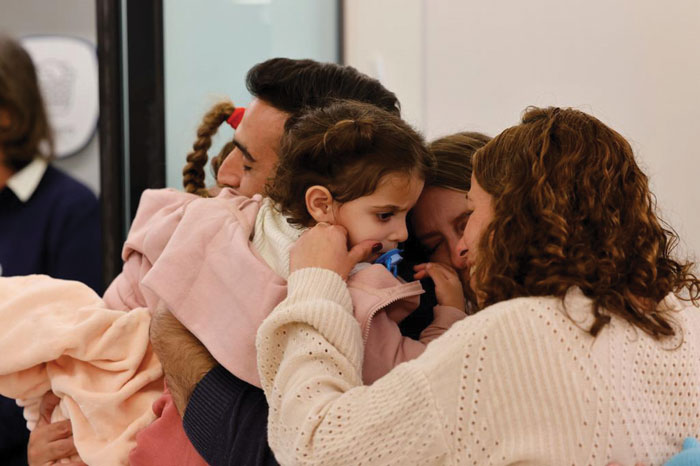 Photo credit: Schneider Spokesperson
Photo credit: Schneider Spokesperson In much of the West, the focus on Israeli hostages in Gaza has revolved primarily around the campaign to bring them home. But while their return home is the end of the story for many of us, for the returnees, it marks the beginning of a long, unimaginable process of recovery.
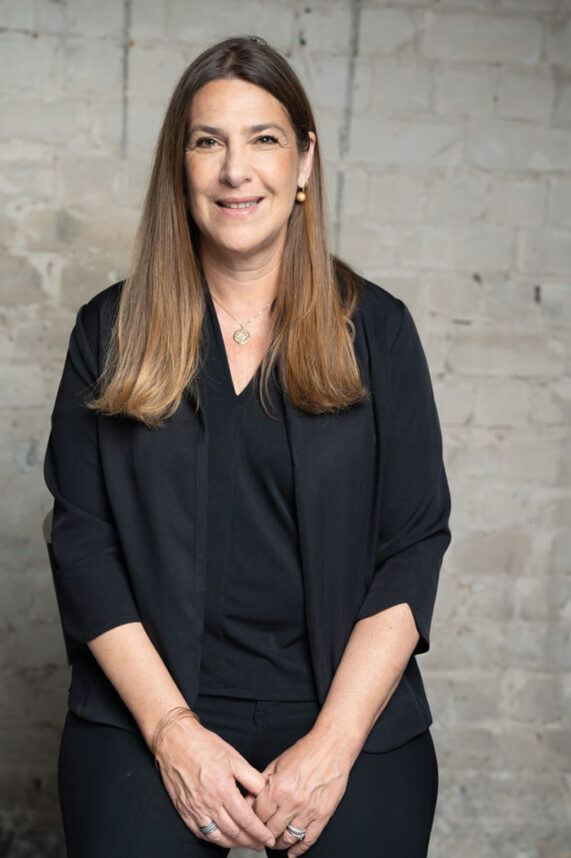
Treating an adult who returned from Hamas captivity is one thing. But what about the children? I spoke to Dr. Efrat Bron-Harlev, director of Schneider Children’s Medical Center in Petah Tikva, which received 19 children freed from captivity in Gaza. In our conversation, which has been edited for length and clarity, we discussed how Efrat and her staff prepared for the unprecedented scenario of treating released child hostages, those first few days of freedom, and the hope she holds for the children going forward.
What did a normal work week look like for you before October 7?
Every week in a hospital is different. There is no such thing as a normal week. As with any pediatric hospital, we have a work plan for each of our wards. Our hospital has everything in the pediatric world, from our emergency department and general pediatric wards, to neurosurgery, severe trauma patients, organ transplantation and cardiac operations.
The special thing about Israel is that because this is a public system, any Israeli is entitled by law to receive medical services everywhere, and when children come to our hospital from throughout Israel, I always say it’s an above and beyond hospital because children are above and beyond. All children come here. It doesn’t matter if they’re Jews, Arabs, ultra-Orthodox Jews, secular Jews, Muslims, Christians, whatever. And we say that we speak the language of the children, so our everyday work is to look at children as children and not as children with a disease, and to treat them as children.
Moving to October 7, at what point did you decide you wanted to take in kids who were going to be released from captivity in Gaza?
On October 7 I woke up at home and I understood that there was missile fire from the south. We turned on the TV immediately, and saw that this is definitely not just another event of missiles being shot. At 7:05, I understood that we at the hospital should be prepared for a completely different situation, and by 8:00 I was already at the hospital. By 10:00 my staff were at the hospital, preparing to move around two-thirds of the hospital to fortified areas or to areas that are more secure.
By the end of October 7, when we understood that this is the most horrific day we’ve ever had, we still did not understand how horrific it was for the children. It took a few days before we had the full picture.
There were hardly any injured children. The injured children went to Soroka [Medical Center in Be’er Sheva] and were treated very well, but we expected to receive more children here at Schneider, and we didn’t. Not even one. When we tried to figure out why that is, we understood there were three possibilities: either children were evacuated and they’re fine, or children were butchered there, and did not arrive anywhere because they were dead … And the third group of children … were children who were kidnapped.
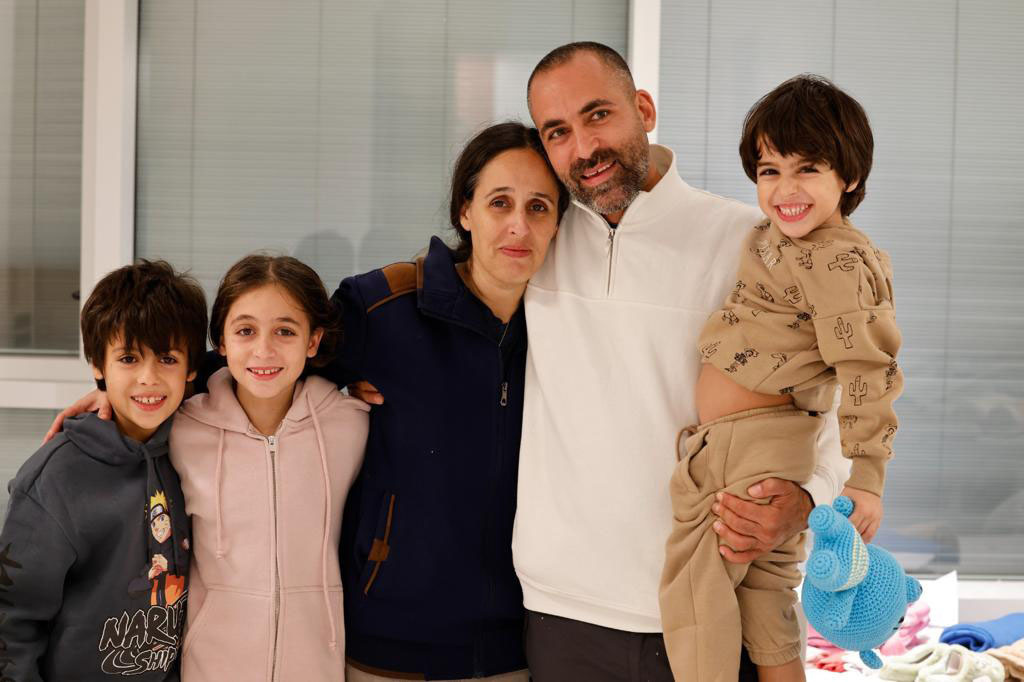
We understood that on one hand, we had to continue taking care of the children we had before October 7. The world does not stop; you have to continue taking care of very ill children, and we should continue doing whatever we can to make sure that the children that arrive here regularly receive their medical care in a secure area.
But there is one group of children—the children who were kidnapped. We should prepare to receive them once they’re back. We started planning for that to happen very early, in the middle of October.
I think the first reason we did it is for us to feel as caregivers that we are doing something, because the feeling of not being able to do anything is terrible. Being in a hospital anywhere, but especially in Israel, you really want to make sure you are doing something for someone. Second, we were sure that it would not take a lot of time [for them to return]. I mean, who would keep very young children as hostages for such a long time? Who would do that? So we had that optimistic thought that it would not take a long time before they’re back.
By [late October] we were completely ready … The main problem for us was to understand their emotional condition. And for that, like always in medicine, we went to the literature to look for professional information, but we could hardly find anything in professional journals. There were almost no papers written, or no professional literature written about children who are in captivity and war who come back from such a place. We had to figure out from our knowledge in different areas in psychology and psychiatry of traumatic events for children, what [to do and how to do it].
Before you received the first children released from captivity, how were you and your staff feeling? Did you have any expectations?
First of all, we had great hope that they would come quickly, and it didn’t happen.
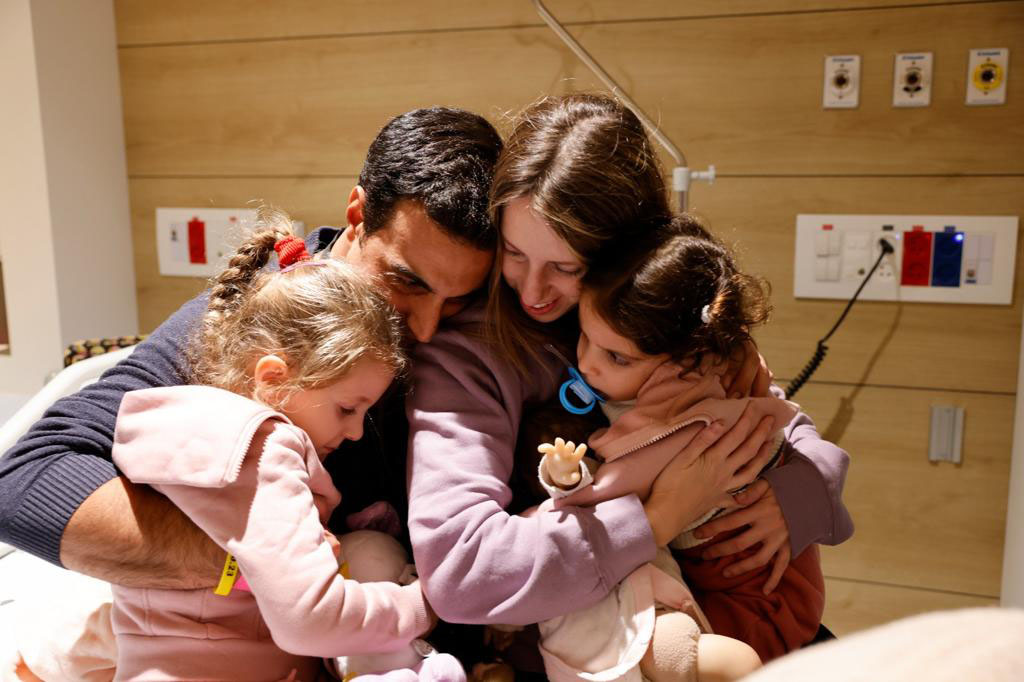
We had daily meetings with very high ranked officers in the IDF. We were working with them, and every day I asked, “So, when are they coming?” It took about a month from the time we started planning until they actually started coming. Through that period, it was very tough on us emotionally … And we kept it very secret, so we had a very small, very multi-disciplinary staff. But still, a very precise choice of who we decided to bring into this. But it was very tough — to keep it secret, but also to think about it daily, of what they’re going through there.
We knew there were children there from the age of less than a year, until 18, and everything in between. Thirty-eight children we knew nothing about, and we were waiting and waiting for them.
Most of the people at Schneider did not know anything about it … It was kept like a top secret operation until the last minute.
Tell me about the moment the first child hostages arrived.
Part of our protocol was to make sure that from the first minute the helicopter lands at the hospital, they will not have even one second where they don’t feel secure, safe, and they don’t know what’s going to happen.
I am a pediatric ICU physician, and my deputy is an emergency department physician. So we know how to look at someone and tell if they’re okay — meaning they’re conscious, they’re breathing, they can walk, they’re too weak, they’re too anxious.
So we decided we would go to the helicopter and escort them from the minute the helicopter landed until we got to the ward. On the way, some other staff members would meet and escort us with them.
I went to the first helicopter. The helicopter shut down the engine; it became very silent. And then I said to the mother and the children in that first helicopter, “Hi, my name is Efrat. I’m the director of the hospital. I’m a physician. Welcome to Schneider. You are in Petah Tikvah. We will take care of you. Welcome home.”
It was amazing to see that they were not crying; they were not laughing. They were hardly talking. They said, “Okay,” and “Where are we going?” [They] asked very minor questions, but you could not see any emotion in them. It was like shadows of children, shadows of people, and not people. It was very tough. You don’t expect that kind of first impression. I expected them to cry or be very anxious, but it was like nothing … a blank person.
It was like shadows of children, shadows of people, and not people. It was very tough.
After that were different moments of making sure they felt very secure, that they knew exactly where we were going, what would happen. And then for them to be able to make choices, which is another thing they did not have while they were in Gaza. They could not choose anything, not even if they could stand up, if they could talk, if they could look out the window. Nothing.
In the end, had you prepared everything you needed for the kids? Is there anything you’d do differently?
We were very well prepared, and one of the reasons is that in our preparation, we understood that we needed to be very flexible. Whatever we prepared, we were ready to change if needed.
For example, we were afraid of refeeding syndrome. If someone does not eat for a long time, or eats very little for a long time, you have to make sure that when you refeed that person, you don’t overfeed them. You give them certain types of food that they should eat. You would not give such a person a big steak as the first thing to eat, or very oily things, because that might be dangerous for such a person. So we knew we had to make sure they ate the right food, good food, food they like.
But it’s also the emotional aspect of their dreaming of eating schnitzel and mashed potatoes or kneidlach soup. One boy wanted kneidlach soup. That was his dream. That was something he said: “I was thinking only of one thing that I want to eat: kneidlach soup.” We didn’t have kneidlach soup, but within half an hour we got it.
Going back to flexibility. It’s not only what you plan for. It’s planning what you don’t plan for.
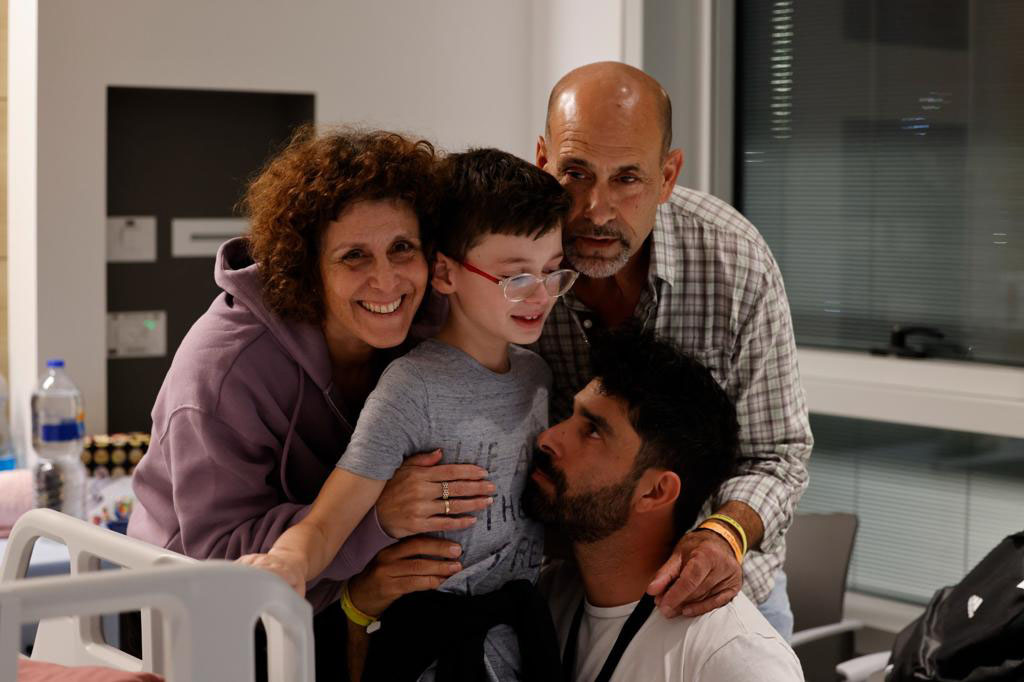
We set up the rooms and beds in a certain manner so we knew who from the family that was not in captivity would want to stay with the children, or the mother, or even the grandmother we had here. But then the families came a few hours before the arrival and said, “No, we think we want one more room”; “Can we put up a bed that is together with the other bed?”; “She doesn’t like red, do you think you might have a sweatshirt that is green?”
It sounds more like a hotel, but it’s medicine. We … were so exact in anything these returnees needed, and it didn’t matter if they were three, 13 or 78. We got them exactly what they needed — medically, physically and emotionally.
This is the major thing we did correctly — being very, very flexible, and first, making them trust us, giving them back the feeling of trust. The second most important thing was to give them the feeling of being at home. The third was giving them the opportunity to choose whatever they wanted.
There was a lot of footage on social media of reunions between returned hostages and their families. On one hand, the entire Jewish world, and even parts of the non-Jewish world wanted to see those reunions. On the other hand, these people needed their privacy, especially after what they’d been through. How did you manage that?
First of all, the ward that they were in was completely private. From the first minute they landed there was cover — nobody could see them as they were going from the helicopter and entering the hospital by bus. Then there was a very secret entry directly to the ward, so nobody could see or talk to them.
In the ward we only let in the very small professional team from Schneider and the IDF officers who were allowed in … We had different areas for guarding these wards, so that nobody who should not be in could go in. Even family members — before they arrived, the officers escorting the families asked, “Who do you want to be inside in the first minute?” After they were in, we let other people in if they wanted them.
There were no journalists, no photographs, unless it was the one photographer who took all the photographs you see. We could not tell a family not to photograph, and some of them did take photos and put them on social media. Every photo from our spokesperson was first released with the family. We did not release any photos that the family did not agree to be released. There’s this very short video of [9-year-old] Ohad [Munder] running to his father in the corridor. A very special moment. It was released, I think, two days after he arrived, only after the whole family saw it and agreed to it.
How was the first night in the hospital for the children and their families?
Our protocol was to see they’re okay: walking on their feet, talking, even though they were very pale and skinny. There were some wounds, but not serious. So we said, if they look fine, and they’ve been there [Gaza] for 50, 52, 54 days, they can wait another 12 hours until we check them, until we draw blood, until we do some X-rays. Once we saw they were physically okay, we just let them be.
They went into their rooms. On every door there was a sign stating the family that was there. They usually had more than one room. They went into the rooms, took a shower, got dressed, got all the lice out — there was a lot of lice. Our nursing staff was there to help them. If they wanted to eat, there was great food, and our dietician was there to tell them what they should and shouldn’t eat.
Most of the families, once they came back, went into the rooms, and the corridor was very, very quiet. Almost nobody went out into the corridor that first night. Not only because they were tired, but also they just wanted to be by themselves.
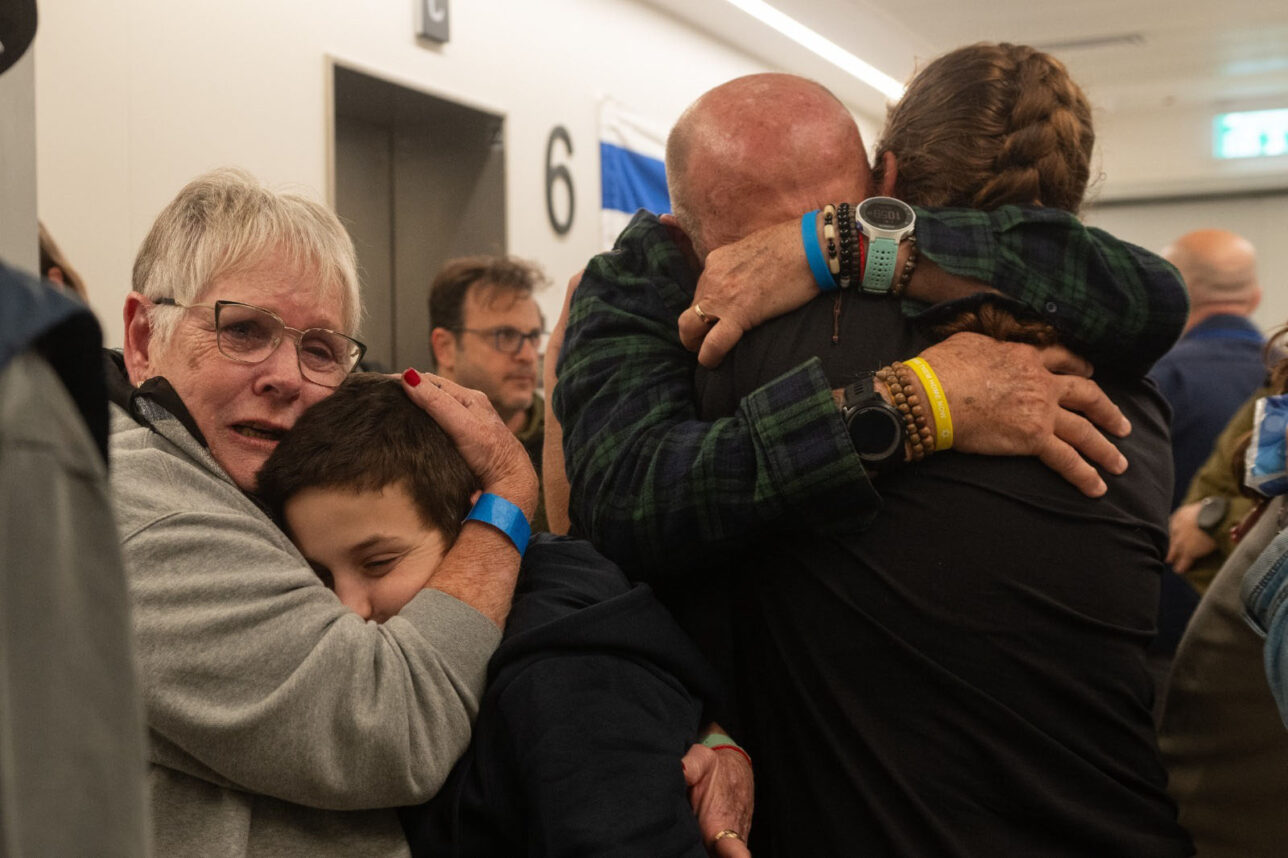
The next morning, they started waking up, opening the doors, and stepping outside of the room very carefully. We even heard some of the children asking, “May we step outside of the room?” Imagine that, they don’t even understand that they can do whatever they want now. “Can I open the cupboard drawer?” Questions that you just don’t believe.
By the second day, they were inviting friends, playing in the play areas according to their ages, sitting in the different seating corners we made, drinking coffee and hot chocolate. We heard the normal voices of children: laughing, shouting, getting mad, getting happy. Just returning back to their childhood.
Of course, [now] we know a lot about many of these children. They’re definitely not fine. They’re not back to what they were on October 6. But they improve every day. They cope with the new situation. Some of their families are not full families. Some fathers are still in captivity. Some fathers are dead. Some brothers are dead. Or sisters. Grandmothers. Most of those families are not as they were on October 6.
How were those first few days for you and the staff?
Our lives are not the same. Our lives are not the same since October 7 as Israelis. I have four sons. One is in Australia, but the other three are fighters. So we each have our own family to worry about. But the children here are also our family. Not only these children, but all the other children who we were taking care of before October 7 and through this whole war. These children and their families, like other families we treat, become our family too. But these families are in a different state, and for us, to treat them was a great privilege. As I said, we were expecting and hoping that we could really take care of these people.
I think we all feel extremely privileged to have been in such a situation where we treated 26 returnees: 19 children, six mothers and one grandmother. We hope to treat more, but sadly, the two Bibas brothers did not come back. Hopefully they will. We still have some hope that they will. And they are in our hearts. We think about them. We talk about them, and we hope that all the other captive adults and children will come back as soon as possible.
I’m guessing that this varies depending on the age of the child, but to what extent did they understand what they’d just gone through?
It depends on the age. But it is very obvious that even the youngest ones we had, who were three and four-years-old, completely understood that they went through something very, very, very bad and big. By the way they speak, by what they ask, by their memories from the 7th of October and what was after that in Gaza, you understand that they definitely understand.
Did they know what happened on October 7?
It depends. They had very different things happening to them in Gaza. Some of them knew more. Some of them even listened to the news once in a while. Some of them knew what was going on on October 7, because it took a few hours until they were in Gaza, and some of them knew little.
But they all knew there was a war, because they were constantly under attack from the Israeli Air Force. They heard a lot of bombing around them, and you hear them saying that on one hand, they were kind of happy that they were not forgotten, even though they were told by their captors that there is no more Israel; nobody’s looking for them; they don’t have a family anymore; they will stay there forever. That’s mostly what we heard from the teenagers.
So on one hand, they were very happy that there was a war. It made them feel that we were fighting for them. But on the other hand, they were very, very scared that they would be killed in one of these attacks. And now we hear from the families who still have family members in Gaza, that this is the most frightening thing for them — that they will die in the war. And this is why they need to come back very, very quickly — those who are still alive.
Did the kids speak much about their captivity?
Yes. They spoke a lot about it.
One of them said about one of her captors: “You know, he really loved me. He really liked me a lot.” She’s like five years old. She was talking to one of the teachers [in the hospital], and the teacher asked how she knew that he liked her. She said, “Because he always gave me a little more pita to eat, and he said he’s giving it to me because I am such a nice girl. And he gave me a piece of paper I can draw on.”
For a child like that to go through 50 days in captivity, but still have an easier experience is because children are usually so optimistic. They find the very basic things in life that make them feel okay. Even though they’re closed in a room — they cannot cry, they cannot laugh, they cannot talk, they must whisper. But even in this condition they can find some good things to hold on to, so they stay optimistic.
I think the teenagers had a less easy time believing they would come back to Israel. But I think when we saw them, at that moment in time when they just came back, they couldn’t believe that they were back. I think they were very happy to come back. But since then, I think they’ve had a pretty hard time getting their lives back together.
Can you talk about what it’s been like for them?
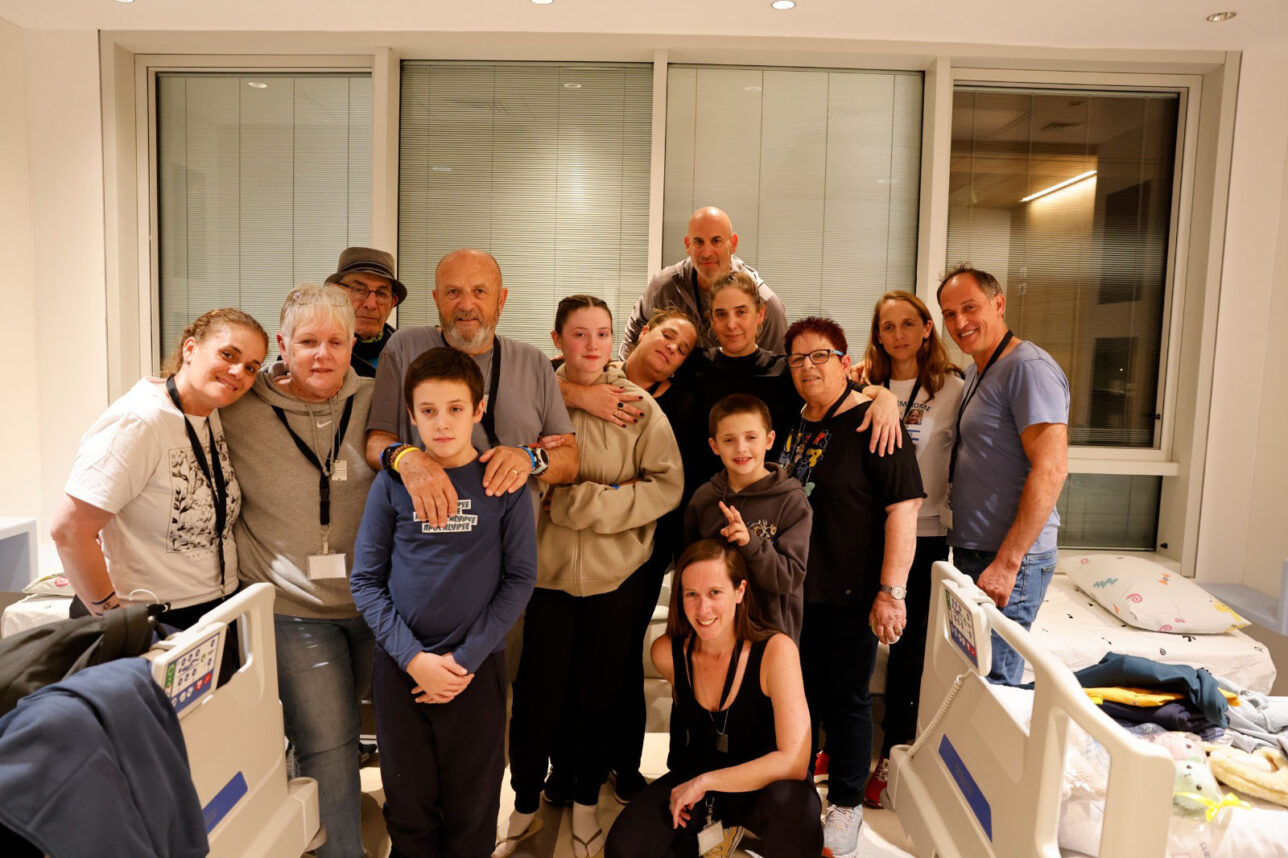
We don’t see them very often, but it’s from what we hear in our outreach to caregivers in the community. You have to remember that most of them, if not all of them, don’t even have a home to go back to. They came back, they live in a hotel or something similar. They don’t go back to school. They don’t have a regular daily pattern to return to. The war is still on. They found out about many of their friends who were either killed, or some family members who are still captive. Like all of us, they cannot go back to normal life, and we know that the most important thing for children who undergo such a traumatic event is to try to get back as soon as possible to some normal life, but there’s no normal life for them to go back to.
When they were at Schneider, did the kids or their mothers do or say anything that shocked or surprised you?
One of the girls who came back — she’s a really lovely girl. She’s 14. She was there [in Gaza] most of the time by herself. A 14-year-old girl. Just imagine that. She came back, and she was told that her brother was killed. And even though she was very sad about that, in those few days she was at Schneider, she asked for some of her girlfriends to come visit her. Three or four girls came on the second or third day after she returned, and they made a short TikTok video with them dancing. So for the first minute you’re saying, “Wow, she’s really not okay if she’s making this TikTok video and dancing. She just came back. She was all alone. Her brother was killed.” This is completely abnormal behavior.
And then you think again, and you understand that this is completely normal behavior for a 14-year-old child who was there almost by herself for 52 days. And besides being very, very sad and anxious, she also just wants to be happy and to dance. And I think that minute when she was with her friends, dancing and posting it on TikTok, it’s like, “I want to get back to my normal life,” which is great, actually. It surprised me, and I would say even worried me — not only me, the staff — but a minute after that we realized that this is really right. This is okay. It’s good.
Do you have hope that they’ll be able to recover well?
Yes, I think they have a very high chance of being okay … because they’re children and they’ve been treated from the minute they got here. By giving children the right tools for how to cope with different situations, if they use these tools in the right way, and if we help them use these tools in the right way, they probably will be very strong adults, maybe even stronger. I’m not suggesting this to anyone in order to be strong. But if it already happened, and if they find the right way to cope, I think they might grow up to be very strong people because of it … I definitely think it can happen.
Is there anything else you want to say to Diaspora Jewry or to the non-Jewish world?
A hospital in Israel, especially a pediatric hospital, is a hospital that we call above and beyond, because children are above anything — religion, belief, war, enemies. Children are above and beyond because children are innocent bystanders, and children are the future of the world.
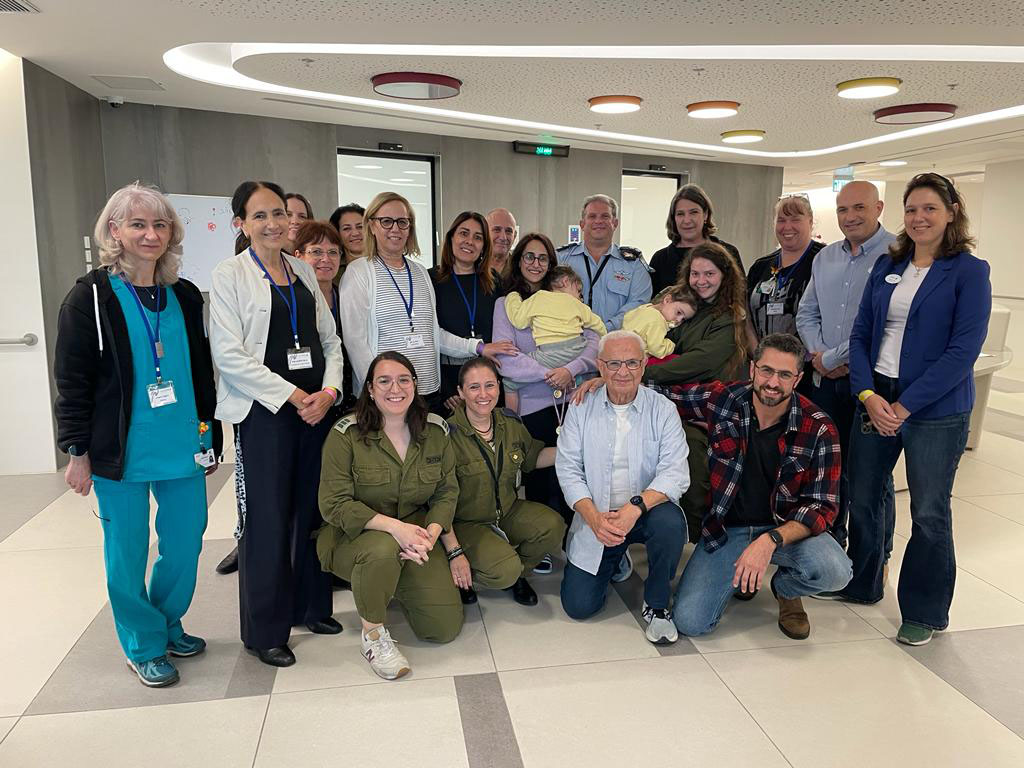
So our culture at Schneider is to treat any child and to think about how we can treat more children. During the Ukraine war, we brought in some children. We made a great effort for them to come here, because we felt that we should help. But this is the first time that I, as a physician and director of a pediatric hospital in Israel, felt that something went so wrong in people’s minds on October 7 that they would treat children in a way that I would never believe anyone could.
To hurt them, to torture them, to kill them, to take them into captivity. It’s something that completely changed how I see adults. I could never believe this would happen. So for me to continue and believe that children are above and beyond everything, and that, even though this happened, we should still see all children as children that we should treat, because they are the future of the world — I think this is our way to beat evil.
Josh Feldman is an Australian writer who focuses primarily on Israeli and Jewish issues. Twitter/X: @joshrfeldman






















 More news and opinions than at a Shabbat dinner, right in your inbox.
More news and opinions than at a Shabbat dinner, right in your inbox.